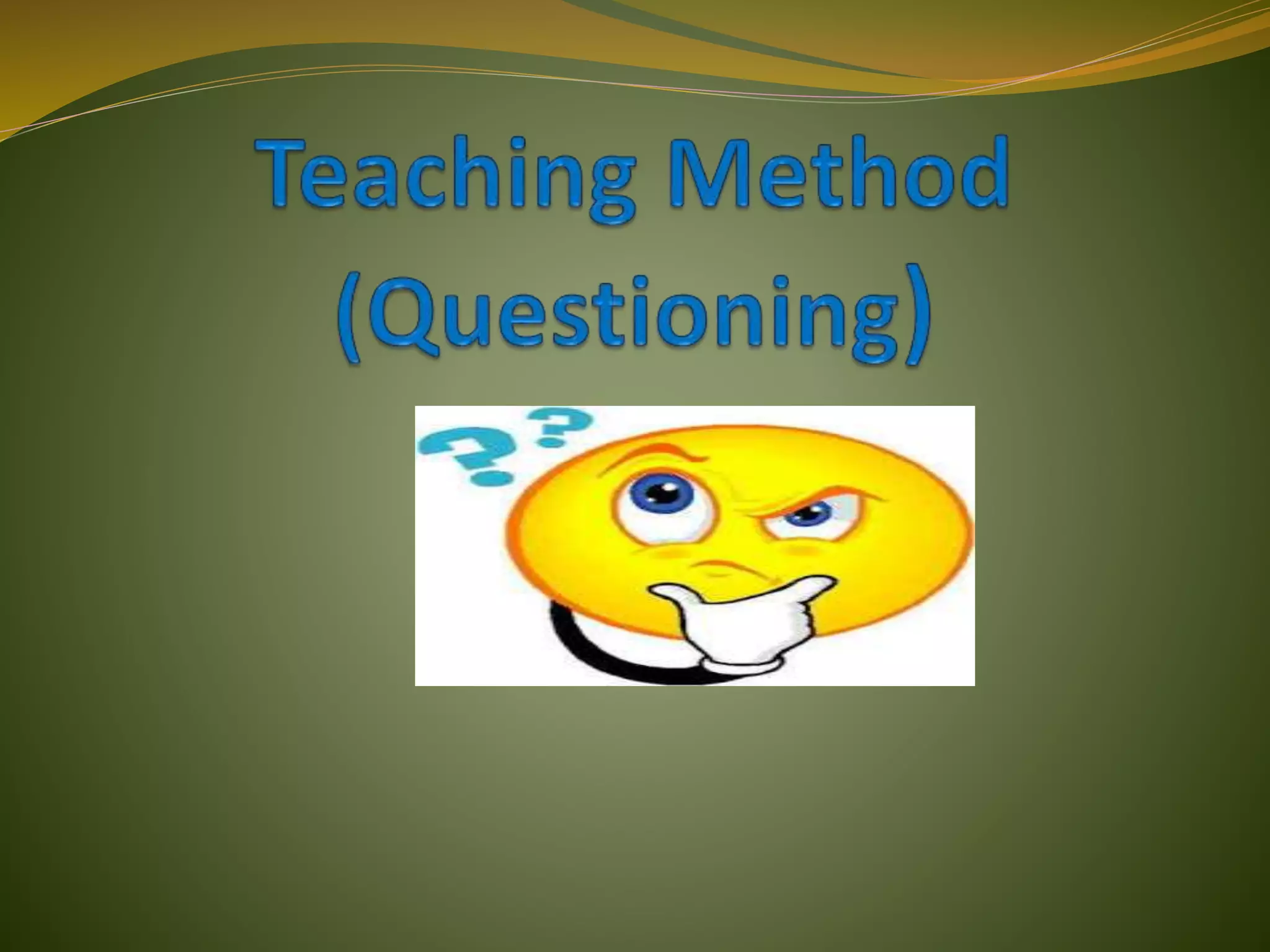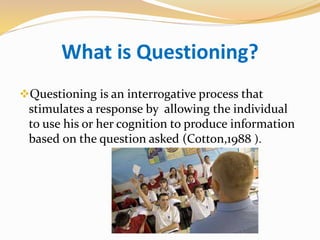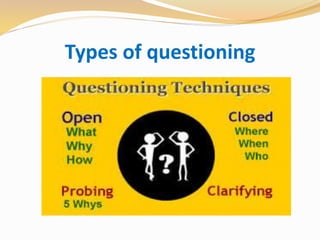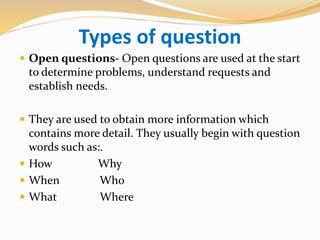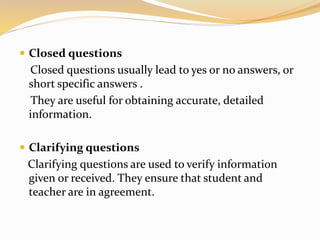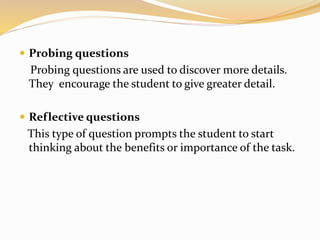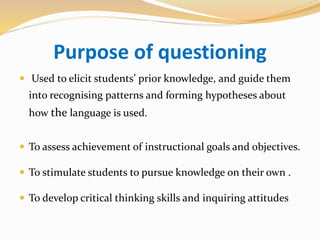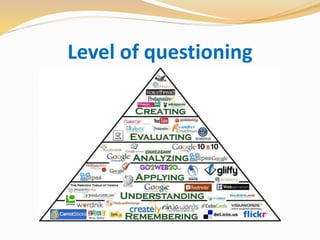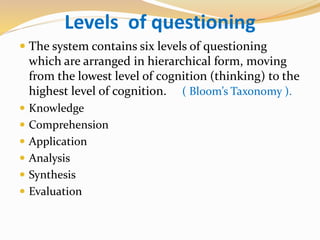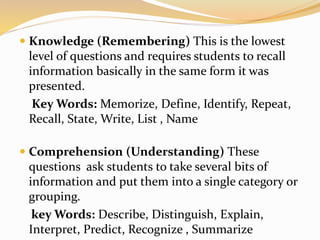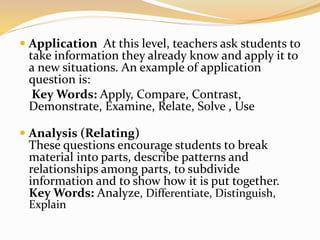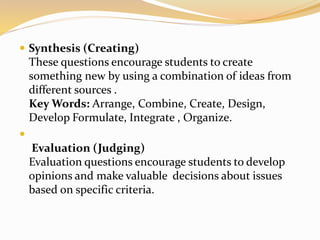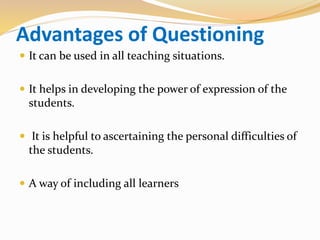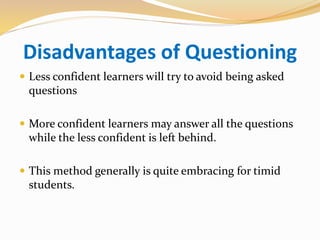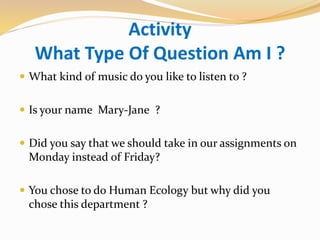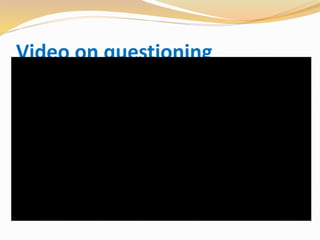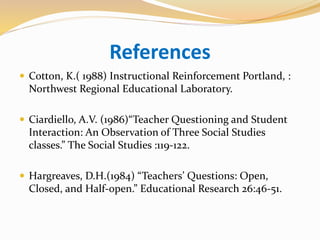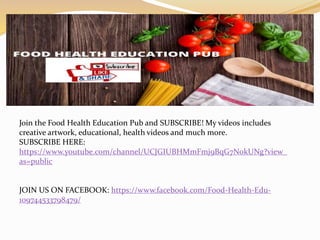This document discusses questioning techniques used in education. It defines questioning as a process that stimulates responses and uses cognition to produce information. There are different types of questions including open-ended, closed, clarifying, probing, and reflective questions. Questions can be used for various purposes like assessing knowledge, stimulating independent thinking, and developing critical thinking skills. Questions can also target different levels of thinking from basic recall to evaluation, as outlined in Bloom's Taxonomy. The document reviews advantages like engaging all learners and disadvantages like intimidating timid students. It provides examples of different types of questions.
